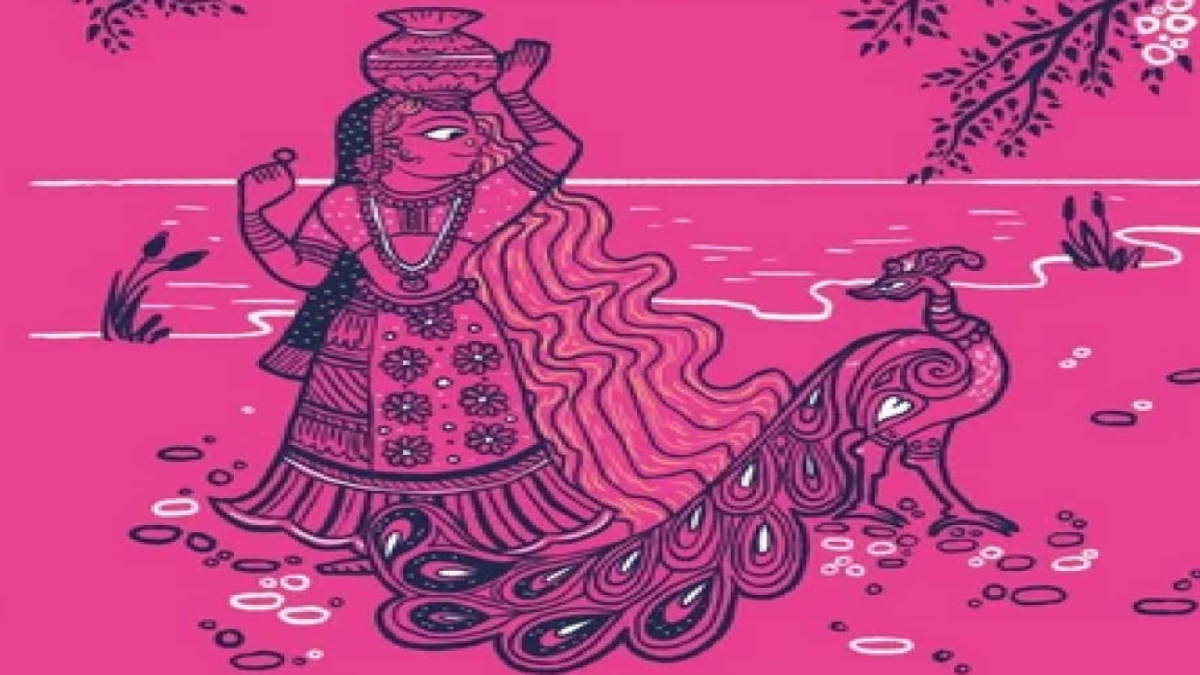


‘I’ll tell you a secret . . . A writer’s own experience, craft, imagination and thought have a limit, but the stories heard from the mouths of men and women have neither a limit nor a boundary. Neither a limit to storylines nor to the collective thought processes. Neither a boundary to the imagination nor to experience.’ – Bijji
A chronicler of Rajasthani culture and fondly known as Bijji, Padma Shri Vijaydan Detha’s collection of Rajasthani folk tales, the classic Batan ri Phulwari, have been produced as retellings in Timeless Tales from Marwar. Batan ri Phulwari, meaning ‘Garden of Tales’, is a fourteen volume collection of folk stories collected and written over nearly five decades. The literature of Rajasthan is usually thought of in the binary of khyaat and baat. Khyaat are the chronicles and praises of kings and rulers, while baat are imaginary tales that need not be historical. This collection falls into the latter category.
Vijaydan Detha was born in 1926 in Borunda, Rajasthan, in the Charan caste of bards and poets. One of the country›s most prolific and celebrated voices, his writings include more than 800 short stories, several of which have been translated into multiple languages. Detha’s timeless classics have also been adapted into major plays and movies, some notable ones being Paheli, Charandas Chor and Duvidha. Bijli collected all the stories in Batan ri Phulwari from Borunda and its surroundings. They were told by men who would sit around at the village chowk after nightfall, chatting and telling stories to one another.
In the book›s introduction, social activist Aruna Roy talks about this rich ‘oral tradition’ of storytelling in Rajasthan—one whose “every retelling adds textures, from one generation to the next for hundreds of years”. Vishes Kothari, who has translated the stories from Rajasthani to English, has attempted to conserve as much of the text›s regionality and orality. He has also sprinkled several Rajasthani words throughout the prose to keep it as close to the original as possible—for instance, mandana (a type of rangoli or mural art made on floors or courtyards in Rajasthan), choorma (a traditional Rajasthani dish made of crushed wheat flour dumplings with ghee), khejdi (the state tree of Rajasthan) and jharokha (an enclosed, overhanging balcony—a common feature in Rajasthani homes).
The stories range about everything from fortresses to castles, havelis and mansions, landlords, farmers, kings, constellations, trees, ghosts and animals. Each story begins with a quote talking about Bijji›s foray into the world of Rajasthani literature, progressively tracing his journey—from the time when he decided to start writing in his mother tongue, went back to his village and nurtured the craft and what he learned from his gurus. The book is also sprinkled with quotes by folklorist and oral historian Kamal Kothari providing his personal insights on collecting folktales.
Neha Kirpal is a freelance writer based in Delhi. She is the author of ‘Wanderlust for the Soul,’ an e-book collection of short stories based on travel in different parts of the world.
All her published work can be accessed on her blog www.nehakirpal.wordpress.com